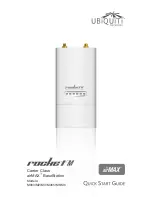
6-12
Configuring Secure Shell (SSH)
Configuring the Switch for SSH Operation
For example, to generate and display a new key:
Figure 6-6. Example of Generating a Public/Private Host Key Pair for the Switch
The 'show crypto host-public-key' displays data in two different formats
because your client may store it in either of these formats after learning the
key. If you wish to compare the switch key to the key as stored in your client's
known-hosts file, note that the formatting and comments need not match. For
version 1 keys, the three numeric values bit size, exponent <e>, and modulus
<n> must match; for PEM keys, only the PEM-encoded string itself must
match.
N o t e s
"Zeroizing" the switch’s key automatically disables SSH (sets
ip ssh
to
no
).
Thus, if you zeroize the key and then generate a new key, you must also re-
enable SSH with the
ip ssh
command before the switch can resume SSH
operation.
3. Provide the Switch’s Public Key to Clients
When an SSH client contacts the switch for the first time, the client will
challenge the connection unless you have already copied the key into the
client’s "known host" file. Copying the switch’s key in this way reduces the
chance that an unauthorized device can pose as the switch to learn your access
passwords. The most secure way to acquire the switch’s public key for
Host Public
Key for the
Switch
Version 1 and Version 2 Views
of Same Host Public Key
















































